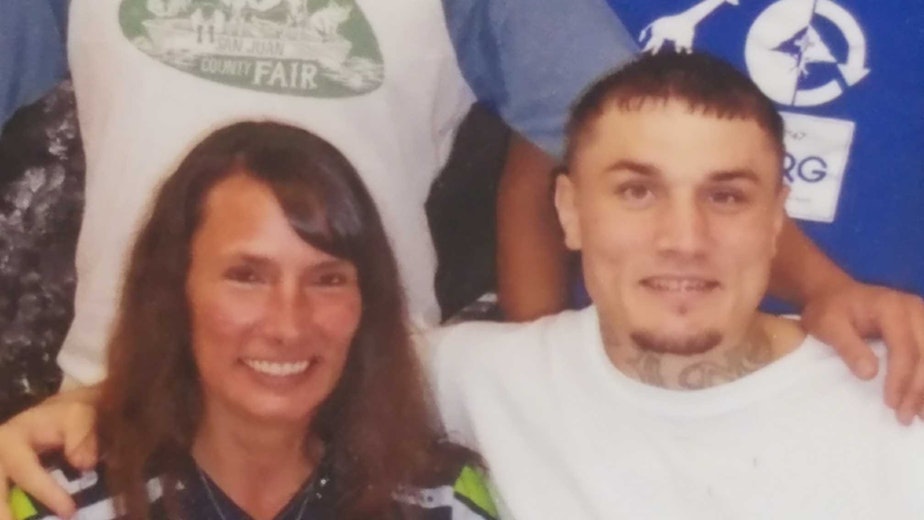I got the coronavirus at Monroe prison. This is how it went

Voices of the Pandemic features people in the Seattle area on the frontlines of the coronavirus outbreak in their own words.
Todd Sloan is an inmate at the Monroe Correctional Complex. He was one of the first inmates to contract coronavirus while incarcerated.
They woke us all up at 12:30 one night, and took us to the day room. They had nurses in full Tyvek gear taking our temperature.
I have Crohn's disease and a weakened immune system, so I'm pretty used to spiked temperatures and weird stuff happening. And I had a temperature of 100.5.
I'd been watching the news for weeks. We'd seen the death toll climb to thousands and thousands and thousands and I didn't know anything other than this thing's gonna kill me.
I called my mom, and I was freaking out. I started crying and I was like, "I don't want to die. I don't want to die without letting you know that I love you and my little brothers and sisters, and I just want you guys to know that I'm sorry.”
Sponsored
They locked us in the day room and wouldn't let us go anywhere. And then at 5 in the morning, they came in, and shackled us up and took us to a different unit, the old IMU.
It was the old isolation. IMU, which is the intensive management unit. It’s where you went if you got in serious trouble. It's like the maximum security. I was essentially in the hole.
The water would come out gray and cloudy, brown and bubbly and oxidized.
It's basically like I had been in a fight or gotten in trouble for doing something. But none of us had been in trouble.
I was in there for 19 days.
Sponsored
In those 19 days, I got two showers. I only changed my sweatpants.
The officers in there were trying to make it the most comfortable they could. But the people that were above them never came to see what was really going on -- never.
And they were the ones making all the calls, so, the officers’ hands were tied.
When we came back positive, they took the phone. They said, ‘You can write mail to your people.’
There's children, my children included, who come to my mom's house. I'm not going to send a letter there. Are you joking? I'm not going to send literally a death ticket home to my family. So how am I supposed to communicate with them?
Sponsored
(The hard part is) not knowing how my family was doing, or how I was doing because they wouldn't tell you anything, they would just kind of nod their heads. They would kind of whisper to each other and you're like, “Cool, what? What is it?”
I was sitting in isolation, thinking, "I'm going to die, and you can't even tell me what the heck is going on."
They never got back to us, never said, “Hey, your family says they love you,” or, “They're praying for you.”
It was horrible in there. I felt like I was being punished for something that I had no control over.
They had the heat turned up. It was anywhere from like 87 to 92 the whole time. I kept asking them, “Hey, why is it so hot?” They said, “Yeah, it's because the heat kills the droplets.”
Sponsored
And then the second that they found out that it wasn't true ... they completely turned the heat off. So you're bundled up in sweaters and sweatpants and blankets. It was two drastic extremes.
The straw that broke the camel's back was they started refusing to give us recreation and refusing to give us yard. I think at one point we went six or seven days without any yard.
There's people that literally, their sanity rides on that little bit of fresh air, and working out, and going to work. And all of that stopped all at once. And then you have the added stress of not knowing -- not only what's going to happen to you, or how it's going to affect you, but what’s going to come after that.
I was starting to feel better ... I wasn't coughing anymore; I didn't have a temperature anymore. I could see my body starting to come back. All the symptoms that I was having were going away.
Sponsored
I was just so relieved that I was actually dialing numbers on the phone and talking to my mom. And when she answered she just freaked out and started crying. And telling me she loved me and you know, she explained to me how she had felt about it, like she thought that maybe she might not ever talk to me again.
She was crying so hard she was shaking, and I started crying, and I was like, “You know I love you. I'm here. I'm okay." And … we just kind of went from there and caught up.
I didn't really tell her a whole bunch the first day because she was already super overwhelmed. The first conversation was just her telling me she loved me.
Alec Cowan composed music for this story.


